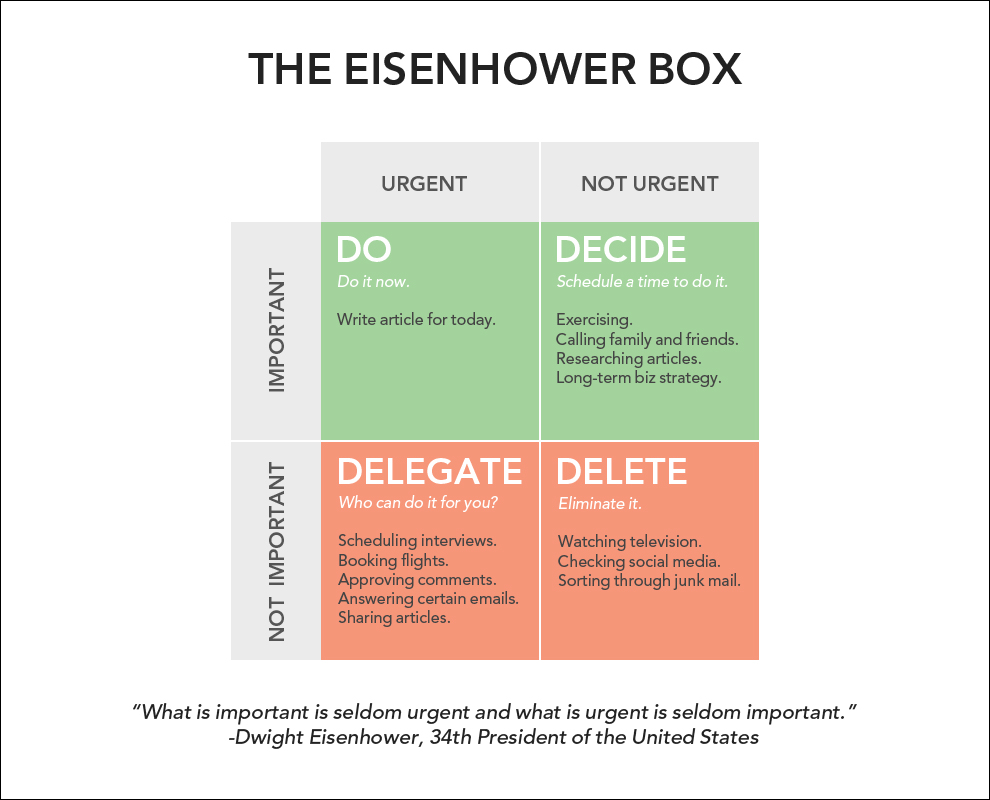3 Simple Ideas to Improve Your Performance


Written and verified by the psychologist Gema Sánchez Cuevas
Being consistent and reaching objectives – if we take into account the time taken to achieve these goals – maintaining good performance is not an easy task. Although it doesn’t seem to be the first feature to identify them, some psychologists actually dedicate many years of study and practice to trying to improve other people’s performance. The studies have been on athletes, students, air traffic controllers and many other professions.
One way to achieve performance improvement, which can be applied to most cases, is through the reinforcement of motivation, the organization of information, or the visualization of tasks. Among the many ways you can improve your performance from a psychological perspective we have selected three simple ideas for this article. The good thing is that you can apply them by yourself, and they don’t have undesirable side effects.
Manage your time and organize your priorities clearly
Good organization is essential in order to have the maximum performance possible in any project, work, or task. Likewise, good organization has as a foundation a stable set of priorities. It has an effective way of ordering these priorities depending on the circumstances.
Two of the most important parameters that determine the order we’re talking about are the relevance and urgency of each task. Steven Covey spent many years as an expert in the management of large companies creating the following method to decide what to do at each moment.
Use this method to place pending tasks on the calendar and improve your performance. It will allow you to meet your deadlines. It’ll also help you know when the right time is to delegate a job or when to remove it from your list of “pending tasks.”
“Taking personal responsibility is a beautiful thing because it gives us complete control over our destiny.”
-Heather Schuck-

Be realistic in your planning and organization
One of the main errors made by people who are looking to improve their performance is an inability to calibrate how long it’ll take to achieve a goal or finish a task. This causes them a great frustration. They always feel like they aren’t cutting it. Additionally, the lack of productivity they perceive often makes them give up or become more easily distracted. This ends up creating a cycle which gradually undermines their self-esteem.
How can you avoid falling into this trap? The best thing you can do while planning a complex task is to break it down into simple items. By doing this, your estimate of the time it’ll take you to complete the task will be much more realistic. If you’re very clueless, this breakdown will also help you remember the tools you need before getting to work.
Another good idea to obtain more realism in your agenda is to divide the day into two parts, morning and afternoon. Or even mid-morning and mid-afternoon. It’s also important to include breaks and small rewards. Your moments of concentration are as important as your “moments of leisure” if you really want to obtain good performance and maintain your motivation.
Where do you want to go doing what you’re doing?
Trying to improve your performance, staying motivated, and being constant without knowing why you do what you do is simply impossible. The activities or tasks without a “final” motive are the most difficult to maintain over time. They’re done without “care or detail” and your performance gets affected because deep down you’re not interested. Therefore, it’s good to have an image in your workspace. Either on the desk or on the computer desktop, one that reminds you of the reasons behind your efforts.

If your job doesn’t make you happy, you have to keep looking at that image. It’s that job which allows you to provide for your family. It lets you make those trips you like and enjoy so much. Lets you go to concerts or go out on the weekends with your other half. Sometimes the work and tasks aren’t satisfactory in themselves, but they allow you to reach a higher goal. So it’s good for you to have elements which remind you of that motivation.
Being consistent and reaching objectives – if we take into account the time taken to achieve these goals – maintaining good performance is not an easy task. Although it doesn’t seem to be the first feature to identify them, some psychologists actually dedicate many years of study and practice to trying to improve other people’s performance. The studies have been on athletes, students, air traffic controllers and many other professions.
One way to achieve performance improvement, which can be applied to most cases, is through the reinforcement of motivation, the organization of information, or the visualization of tasks. Among the many ways you can improve your performance from a psychological perspective we have selected three simple ideas for this article. The good thing is that you can apply them by yourself, and they don’t have undesirable side effects.
Manage your time and organize your priorities clearly
Good organization is essential in order to have the maximum performance possible in any project, work, or task. Likewise, good organization has as a foundation a stable set of priorities. It has an effective way of ordering these priorities depending on the circumstances.
Two of the most important parameters that determine the order we’re talking about are the relevance and urgency of each task. Steven Covey spent many years as an expert in the management of large companies creating the following method to decide what to do at each moment.
Use this method to place pending tasks on the calendar and improve your performance. It will allow you to meet your deadlines. It’ll also help you know when the right time is to delegate a job or when to remove it from your list of “pending tasks.”
“Taking personal responsibility is a beautiful thing because it gives us complete control over our destiny.”
-Heather Schuck-

Be realistic in your planning and organization
One of the main errors made by people who are looking to improve their performance is an inability to calibrate how long it’ll take to achieve a goal or finish a task. This causes them a great frustration. They always feel like they aren’t cutting it. Additionally, the lack of productivity they perceive often makes them give up or become more easily distracted. This ends up creating a cycle which gradually undermines their self-esteem.
How can you avoid falling into this trap? The best thing you can do while planning a complex task is to break it down into simple items. By doing this, your estimate of the time it’ll take you to complete the task will be much more realistic. If you’re very clueless, this breakdown will also help you remember the tools you need before getting to work.
Another good idea to obtain more realism in your agenda is to divide the day into two parts, morning and afternoon. Or even mid-morning and mid-afternoon. It’s also important to include breaks and small rewards. Your moments of concentration are as important as your “moments of leisure” if you really want to obtain good performance and maintain your motivation.
Where do you want to go doing what you’re doing?
Trying to improve your performance, staying motivated, and being constant without knowing why you do what you do is simply impossible. The activities or tasks without a “final” motive are the most difficult to maintain over time. They’re done without “care or detail” and your performance gets affected because deep down you’re not interested. Therefore, it’s good to have an image in your workspace. Either on the desk or on the computer desktop, one that reminds you of the reasons behind your efforts.

If your job doesn’t make you happy, you have to keep looking at that image. It’s that job which allows you to provide for your family. It lets you make those trips you like and enjoy so much. Lets you go to concerts or go out on the weekends with your other half. Sometimes the work and tasks aren’t satisfactory in themselves, but they allow you to reach a higher goal. So it’s good for you to have elements which remind you of that motivation.
This text is provided for informational purposes only and does not replace consultation with a professional. If in doubt, consult your specialist.







